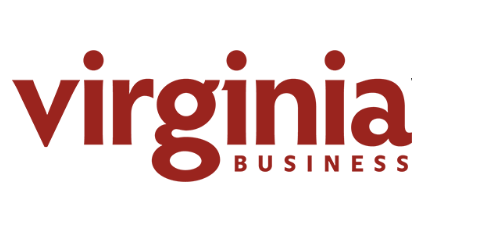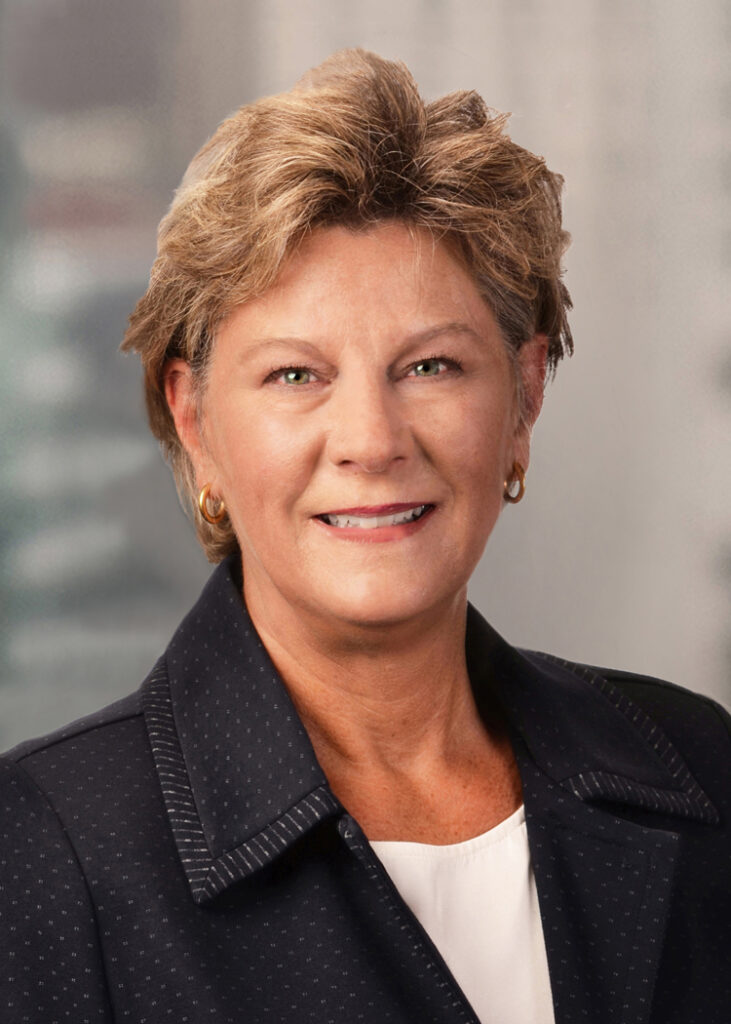The Passive Recruitment Starter Kit

Build your bench with potential qualified candidates
Coined “The Great Resignation,” the high number of open positions and voluntary quits during 2021-2022 has left employers and HR professionals struggling to fill much-needed positions.[i]
“Finding people continues to be a challenge. There is a balance between finding the right people who fit your company culture and affordability.”
Sam Stone, Stone’s Office Equipment, VA Council of CEOs member
If your recruitment strategies are proving ineffective this year, passive recruitment may be just the tool to add to your talent acquisition scheme.
Passive recruiting is different from traditional recruiting because it seeks to engage prospective candidates currently employed who are not actively looking for new work but may be open to a rewarding career opportunity if one becomes available.[ii] This article explains how to:
- Start a passive job search.
- Initiate and build relationships with potential qualified candidates.
- Develop your organization’s online presence to support your initiative.
- Include networking as part of your approach.
- Broaden your reach and make your job offering more attractive.
Buckingham Greenery is always looking for talent! When I come across someone working in our industry that would be a good fit, I politely tell them about our company and how to contact me to learn more about opportunities with us! This is how we incorporate passive recruiting which has been successful!
Connie Hom, CEO of Buckingham Greenery, VA Council of CEOs member
HOW DO YOU START A PASSIVE JOB SEARCH?
The popular notion is that passive recruitment is a specialized skill performed by professional recruiters to fill critical roles quickly. Fortunately, advances in online training, social media, and job board platforms have made getting started more accessible than ever. The most widely recognized social media platform for seeking potential candidates is LinkedIn. LinkedIn offers comprehensive subscription services, search tools, and training for the passive recruiter. Popular job boards also have searchable resume databases (i.e., Indeed, Monster, CareerBuilder, and Ladders*).[iii]
If you are new to passive recruitment, the recommendation is to invest in the platform you are most familiar with and regularly advertise your jobs. If budget is a factor, resume databases within job boards such as Indeed, Monster, and CareerBuilder are generally more affordable.
HOW DO YOU INITIATE & BUILD RELATIONSHIPS WITH POTENTIAL, QUALIFIED CANDIDATES?
A polished job advertisement will capture an active candidate’s attention. Yet, take caution. If the first outreach email to a potential candidate mimics a job posting, your efforts to engage their interest could be quickly undermined (i.e., listing a summary of duties, salary, and benefits). Instead, put on your relationship builder hat and make it personal to the candidate. Consider these questions as you craft your first communication to your passive candidates:
- What captivated you about the candidate’s experience or interests?
- What impact could the candidate have in this role?
- What aspects of the company culture or values might appeal to the candidate?
- Did you ask about the candidate’s goals, dreams, and work/life balance needs? [iv]
HOW DO YOU DEVELOP YOUR ORGANIZATION’S ONLINE PRESENCE TO SUPPORT YOUR INITIATIVE?
Many candidates research the company and the position before responding to a recruiter’s communication. For the potential candidate, presenting a professional, trustworthy, and engaging online company identity is key for success.
Sharing your company’s employee experiences and benefits through your company website is a great starter. Likewise, consider these online sources:
- LinkedIn profiles are the most frequently searched. Ensure that your HR and leadership team’s LinkedIn profiles are complete and represent your company’s culture and online identity. At a minimum, compelling profiles contain a professional photo, headline, summary, and the last ten years of employment history.
- Company profile pages, especially from platforms you are using to outreach to passive candidates (LinkedIn, Indeed, Monster, CareerBuilder). Make them rich with photos, employee experience stories, company achievements, community involvement, sponsorships, and posts on fun office events. Engage, appreciate and respond to comments on your posts and ratings.
- Google, search your company, and see what a candidate might find. Read online articles, Yelp, and Glassdoor. Always post meaningful responses within these various platforms.
HOW DO YOU INCLUDE NETWORKING AS PART OF YOUR INITIATIVE?
Passive recruitment and networking work in tandem. In-person networking takes you beyond the virtual Boolean searches and emailing by allowing you to engage one-on-one with potential candidates. An excellent place to start is subscribing to industry blogs, joining associations, and sponsoring networking events.[v]
HOW DO YOU BROADEN YOUR REACH AND MAKE YOUR JOB OFFERING MORE ATTRACTIVE?
Those adept at passive recruitment have a competitive advantage in their hiring selections and candidate pools. Ultimately, capturing all prospective candidates is achieved through various strategies, and in these unique times, thinking outside the box can reap huge benefits. Consider:
- Widening your candidate reach by converting an in-person role to 100% remote or a hybrid work schedule.
- Ensuring your compensation, benefits, and incentives are within a competitive market range.
- Simplifying your application process.
- Advertising in association newsletters or dashboards and on mobile-enabled job platforms.
- Starting an employee referral bonus program to incent current employees to participate.
In conclusion, this article aims to help guide your organization in the essential methods to embrace a passive recruiting strategy. The best place to start is by selecting a social media or job board platform for passive recruitment and evaluating your organization’s online presence. After you get your bearings, focus on personalizing your outreach communications to potential candidates and actively bolstering your organization’s online identity. Ultimately, passive recruitment is only one arm of a solid recruitment strategy. Employing additional tactics, such as competitive market comparisons of compensation and benefits, networking, or employee referral bonus programs, will bring you the highest likelihood of success.
This article was contributed by Ester Nand, HR Consultant at Warren Whitney, a results-oriented management consulting firm. For over 30 years, Warren Whitney has been dedicated to serving privately held and nonprofit organizations in four areas: Strategy, Finance/Accounting, HR, and IT.
www.warrenwhitney.com
*The Ladders platform is designed for Executive level searches.
Sources
[i] Fontinelle, A. (2022, March 10). Majority of workers who quit a job in 2021 cite low pay, no opportunities for advancement, feeling disrespected. Pew Research Center. Retrieved August 3, 2022, from https://www.pewresearch.org/fact-tank/2022/03/09/majority-of-workers-who-quit-a-job-in-2021-cite-low-pay-no-opportunities-for-advancement-feeling-disrespected/
[ii] Gariepy, L. (2022, January 25). Best sites to search for resumes in 2022. CareerCloud. Retrieved August 3, 2022, from https://www.careercloud.com/news/resume-search
[iii] How to search for candidates on indeed. Job Search. (n.d.). Retrieved August 12, 2022, from https://www.indeed.com/hire/resources/howtohub/how-to-consistently-attract-and-filter-quality-applicants
[iv] Talent acquisition resources: Linkedin talent solutions. Talent Acquisition Resources | LinkedIn Talent Solutions. (n.d.). Retrieved August 3, 2022, from https://business.linkedin.com/talent-solutions/resources/talent-acquisition
[v] Krumrie, M. (2020, September 10). Relationships are key to recruiting passive candidates. ZipRecruiter. Retrieved August 12, 2022, from https://www.ziprecruiter.com/blog/why-relationships-are-key-to-recruiting-passive-candidates/
How Small Business CEOs Adapt to Labor Shortage

In our most recent CEO Survey, 90% of respondents reported that they are experiencing a labor shortage impacting their business.
So, we asked members to share how they have adapted their business models with the VACEOs community through our private social network, VACEOs Connect. Here are some of their stories.
CEO of a Regional Engineering Firm
I’m happy to say that the labor shortage is forcing our firm to accelerate what I felt was going to be an inevitable, but slow shift in our clients and markets. I’ve been saying for years that once we are committed to working with only those clients who value our services, we will see the list of markets and client types shrink, resulting in higher revenues with more profitable clients. With the inability to serve everyone who seeks our services, it has been easier to say yes to our long-term clients who value us and to say no to the newcomers who are shopping for a low-priced commodity or a one-off project.
In summary, while the labor shortage has been painful and costly, I feel we will come out of this better than we went into it.
Owner of a Tech Services Firm
We are a tech services company that has enjoyed a healthy culture of being in the office together 5 days a week. However, because of the shift in the tech industry I compete with employees and salaries from all over the United States, forcing me to a hybrid model – 95% remote, a few of us left in the office a couple of days a week. With the significant increase in salary demands from tech workers, I have been forced to hire nearshore (Latin America) developers instead of US-based developers. The nearshore developers are good, but the language barrier or heavy accents and differences in culture have proven to have a negative impact on our client experience. Our future plans for hiring include fewer US-based employees and more nearshore. We are planning on hiring more experienced, client-facing, US developers for a premium and supplement with nearshore. For example, where I would have usually hired two or three US developers, I will likely hire one US developer and one to two nearshore developers.
President of a Custom Kitchen & Bath Design Company
Our goal used to be to install every project we sold, for quality control and to offer a turn-key experience. Now, due to skilled labor shortage, we have increased the price for us to install. This has two purposes: 1) to pay my installers more and thus increase loyalty, and 2) to make the cost of professional installation a true investment in the product/project rather than something the client takes for granted. No one has pushed back.
We also have a severe shortage of truck drivers. We have been hiring out deliveries more often and paying 300% more than in-house deliveries. Again, no one is pushing back and asking to pick up their products at our warehouse.
And thirdly, we have tightened our trading area. We love doing projects all over the state (and country), but with no trusted trades in outlying locations, we have decided not to take on those projects.
Not All Businesses Impacted Negatively
Ten percent of the businesses in our survey have not experienced
negative impacts of the labor shortage. Here’s one example.
Founder of Marketing Agency
Fortunately, our business model was designed to use a fully remote, independent workforce. That put us in a great position for The Great Resignation because many brilliant marketers decided to work independently. That’s given us access to more good people.
Takeways
Small and mid-sized businesses tend to be more nimble than large corporations. We’ve seen the leaders of these organizations make hard and soft pivots to remain competitive. Think in terms of quarters instead of years.
Actions you can take
- Eliminate or add lines of business, territories, products, services.
- Analyze low-profit customers and replace with more profitable ones.
- Invest in automation, software, or equipment that reduces labor demands.
- Increase prices to reflect the cost of doing business.
- Outsource or partner instead of hiring
Scot McRoberts wrote this post. He is founding executive director of the Virginia Council of CEOs.
Virginia CEOs Expect Increased Sales Despite Shortages

In Q1 survey, 70% expect sales to increase in next six months
According to the first quarter CEO Economic Outlook survey conducted by the University of Richmond’s Robins School of Business and the Virginia Council of CEOs (VACEOs), about 70% of CEOs expect sales to increase in the next six months, despite supply chain and labor shortages.
Ninety percent of CEOs reported a labor shortage impacting their business, and 75% reported at least a minor impact from supply chain shortages.
VACEOs member, Andrea C. Johnson, CEO of van der Linde Recycling & Container Rentals LLC in Fluvanna County, recently told Virginia Business that her company has faced several supply chain challenges. “The time needed to obtain parts for maintenance and repair of trucks and equipment has increased. Additionally, the company faces higher costs on basic safety equipment for employees.”
Johnson added, “probably the biggest impact we’ve had right now, because I run a fleet and equipment, is fuel,” she said. “Our fuel costs have more than doubled over this time last year … and we’re having to add that to the customer cost.”
Another VACEOs member, Henry Clifford, CEO of Richmond-based Livewire LLC, said that he and his staff now call securing supplies “the battle of next week.”
Livewire offers technology integration to homes and businesses, so it directly confronted chip shortages. “At this point it’s now a daily and weekly activity where our logistics folks have just gotten used to life during wartime, essentially, and almost normalized the supply chain shortages,” he said, adding that some lead times for obtaining gear run a year out.
Yet, despite facing strong headwinds like a looming recession and the war in Ukraine, entrepreneurs remain optimistic, said VACEOs Executive Director Scot McRoberts. A higher percentage of respondents (70%) expected sales growth in the next six months than in the survey conducted at the end of the fourth quarter of 2021 (60%).
“These are small and midsize companies’ CEOs,” he said. “These aren’t corporate CEOs, and I think they’re more nimble than larger companies, so they’ve adjusted well to the challenges of the pandemic.”
“One [reason for that] is adjusting to the new virtual work environment that’s demanded by employees,” McRoberts said. “Even though they may be adding employees and growing the business, their demand for seats in the office is not growing with it.
Looking Forward Optimistically
Taken as a whole, the results pertaining to sales, capital spending, and employment continue to be positive with the overall Economic Outlook Index increasing slightly (98.1 versus 93.7) relative to the results from the end of Q4 2021. (Click HERE to view the full survey.)
“The survey results suggest that CEOs continue to be optimistic about the next six months, particularly with respect to predicted sales and employment. This is in spite of significant labor shortages being experienced and ongoing supply chain issues. The overall index has returned to its pre-COVID level.”
Rich Boulger, associate dean at the Robins School
Rich Boulger, associate dean of the University of Richmond Robins School of Business, administered the survey from April 5 to April 14. The majority of respondents were in the services and construction industries. The average company represented had about $11 million in revenue for the past 12-month period and 53 employees.
The Robins School adapted the survey from one from the Business Roundtable, a Washington, D.C.-based lobbyist association of CEOs of U.S. companies, and has administered it since 2010.
About Robins School of Business
The Robins School of Business is the only fully-accredited, highly-ranked undergraduate business school that also is part of a highly-ranked liberal arts university. U.S. News ranks the Robins School’s MBA program #2 in Virginia. The school’s executive education division offers customized training and consulting to a wide variety of businesses.
About Virginia Council of CEOs (VACEOs)
Virginia Council of CEOs (VACEOs) is a nonprofit organization connecting CEOs for learning and growth. Formed more than 20 years ago, member benefits include placement in a peer roundtable group and access to a thought leader network, and a robust program of events for learning and growth. This is not a networking group, but rather a group of CEO peers who are invested in the success of each member. To qualify for membership CEOs must run a business with $1M+ revenue and 5+FTEs. Learn more at www.vaceos.org.
HR Strategies for Employee Retention

Three Simple Ways To Keep Your Workforce, Happy, Healthy and Engaged
The pandemic workplace dynamics have led to unprecedented quit rates and a labor shortage. As a result, employees have more employment options and power, and keeping good people in place now requires more than just “work” and “pay.” To navigate this challenging landscape, business owners need to focus on what they can control. Here are three steps to invest in your employees’ well-being to build engagement and keep your workforce!
1. Conduct Stay Interviews
Stay Interviews are a great way to develop your employees and drive strategic change. These structured conversations between supervisors and employees are designed to learn about employees’ strengths and areas of interest. Employees at every level should participate in a stay interview to be effective and successful. Having these conversations at the start of the new year is a great way to engage the workforce and gather feedback. Based on the outcome of these interviews, implement measurable changes and evaluate them throughout the year. Quantifying the changes helps drive success. This can be accomplished by defining key metrics along with strong communications. Be consistent and plan to keep this process alive every new year.
To help get this process started, below are questions for managers to consider asking their direct reports. Structure these conversations as an opportunity for you and the interviewee to learn and grow.
Question 1: How can I improve my management style?
Remember, people tend to leave managers, not jobs. Embrace this question with an open mind and be prepared to receive constructive criticism.
Questions 2: What do you like about your job; what do you not like?
These questions will provide insight into the individual’s strengths since people typically enjoy doing what they are best at. Revising their job responsibilities to include more of what they like will help improve performance, thus fostering retention.
Question 3: What are your short and long-term goals? And how can our organization help support them?
Good talent leaves if they don’t see a clear path to career advancement. Leave this conversation with a clearly defined developmental plan and how the business can support the individual to achieve their goals.
2. Invest in a Wellness Program
A wellness program is an initiative provided to employees to encourage a healthier lifestyle. The bonus is that improving an employee’s well-being positively impacts productivity, engagement, company loyalty and helps reduce health care costs. In addition, it can be used as a recruiting tool. Here is a list of cost-effective wellness programs that can easily be integrated into your organization.
- Wellness Challenge
Encourage team members to engage in workouts and to drink more water. Have them keep track of their accomplishments to win health-related prizes at the end of the month.Yoga/Meditation Classes
Offer lunchtime breaks that include 15-30 minute yoga or mediation classes. Classes can be found on Youtube!
- Healthy snacks and lunch options
To advocate healthy eating, offer healthy snacks such as nuts, dried fruit, or fresh fruit in the breakroom.
- Offer flexible work hours
The 9:00 to 5:00 day is a thing of the past. Allow your team members to set their hours.
- Advocate for employees to take their vacation
Taking time off to recharge promotes productivity! Encourage your employees to take all their vacation days and do not encourage rolling over days or paying them out.
- Say “thank you” and provide feedback
Showing appreciation makes one feel valued and helps people stay motivated.
- Smoking cessation programs
Supporting smokers to quit their habit will help success rates! Fewer smokers will not only reduce healthcare costs but also improve productivity.
3. Review your rewards and compensation programs
In this competitive job market, it is critical to go beyond just salary to retain and attract talent. By building enticing compensation packages (packages that creatively combine the total value of base pay, benefits, rewards, and other perks into your business strategy), you can distinguish yourself as an “employer of choice.” While there is no one-size-fits-all approach, it is essential to evaluate the below offerings to ensure you are competitive and aligned with your market and industry.
- Base compensation
You want your employees’ salaries to be equal to or more than the industry standard for a specific job title in that location.
- Employee Bonus Programs
Giving incentives allows you to reward your top performers. Here are the five most popular rewards programs: annual incentives, spot bonuses, referral bonuses, signing bonuses, and profit-sharing plans.
- Non-monetary rewards
Employees put a lot of value into their quality of life. Here are examples of non-monetary rewards: flexible schedule, an extra day off, time for volunteer work, training and/or mentoring programs.
- Benefits and Retirement
Research shows that a competitive benefits plan can play a vital role in attracting and retaining skilled workers. This plan should include: healthcare, retirement savings and planning, paid time off, paid parental leave, flexible work schedule, and professional and career development.
- Recognition and Promotions
Create a culture of recognition. A critical piece to the success of this initiative is regularly promoting your programs to make them appealing to your employees.
Remember, a more engaged workforce isn’t just a loyal workforce; it’s a more productive one. Building and retaining a great team is key to your company’s long-term growth and success. In an economy where workers have the upper hand, it is more important now than ever to incorporate employee retention strategies into your business plan.
The Author, Beth Williams of Warren Whitney
Beth Williams, Director of Human Resources at Warren Whitney, has worked in human resource management for more than 25 years with experience that spans many diverse industries, including energy, financial services, banking, legal services, pharmaceuticals, IT, and non-profit. She provides a full range of HR consulting services and strategic solutions, which are customized for each client and provide a clear direction to company goals and objectives. Beth has worked with many of her clients on a long-term basis, serving in interim HR director roles for several small and large businesses around Virginia.
About Warren Whitney
Warren Whitney’s HR team works with business leaders to strategically evaluate the best path forward. Their work includes in-depth compensation and benefits analysis, organizational structure and planning, as well as talent management.
About Virginia Council of CEOs (VACEOs)
Virginia Council of CEOs (VACEOs) is a nonprofit organization connecting CEOs for learning and growth. Formed more than 20 years ago, member benefits include placement in a peer roundtable group and access to a thought leader network, and a robust program of events for learning and growth. This is not a networking group, but rather a group of CEO peers who are invested in the success of each member. To qualify for membership CEOs must run a business with $1M+ revenue and 5+FTEs. Learn more at www.vaceos.org.
VACEOs Fall Leaders Conference 2022

This is a new event you won’t want to miss! We encourage business owners/CEOs to bring their executive teams. VACEOs Members and Sponsors will get a discounted rate but register now to receive the best rates.
Join VACEOs on September 19, 2022, at the Jefferson Hotel in Richmond, Virginia, to spend the day with Verne Harnish – scaleup expert, world renown speaker and bestselling author.
Verne’s Scaling Up presentation focuses on the Four Decisions methodology that every company must get right: People, Strategy, Execution and Cash. Verne will be sharing fours specific ideas-one each for People, Strategy, Execution and Cash-that you can use immediately to drive a positive impact in the business. Look at the #1 most important question to ask in each of the four decisions-and practical examples of how various small to mid-market firms answered these questions, driving much better results.
In the end it’s about getting more money, saving more time, and having more fun in scaling up your business. Verne Harnish will help you get there. To register, click HERE.
Sponsorship Opportunities
Sponsorship opportunities are available. Please contact Scot McRoberts to learn more.
Topics Verne will cover in Scaling Up include:

PEOPLE: Recruitment, on boarding, coaching & culture:
Designing the employee journey.
STRATEGY: Purpose, core customer, brand promise & identifying the company culture.
EXECUTION: Systems, processes & accountability through current technologies.
CASH: Cash flow, margins, key performance indicators & efficiencies.
To register now, click HERE.
Schedule for the day:
Monday, September 19
8:30 AM – 9:00 AM: Registration
9:00 AM – 12:30 PM: Verne Harnish (People & Strategy)
12:30 PM – 1:30 PM: Lunch
1:30 PM – 5:00 PM: Verne Harnish (Execution & Cash)
5:00 PM – 6:00 PM: Cocktail Reception
Who is this for:
This program is open to all CEOs and their senior executive teams. Click HERE to register.
About the Speaker
Verne Harnish is founder of Entrepreneurs‘ Organization and Scaling Up, a global coaching and executive education firm. He has spent the past four decades helping companies scale. He‘s author of Mastering the Rockefeller Habits; The Greatest Business Decisions of All Time; Scaling Up (Rockefeller Habits 2.0) and Scaling Up Compensation.















Recent Comments